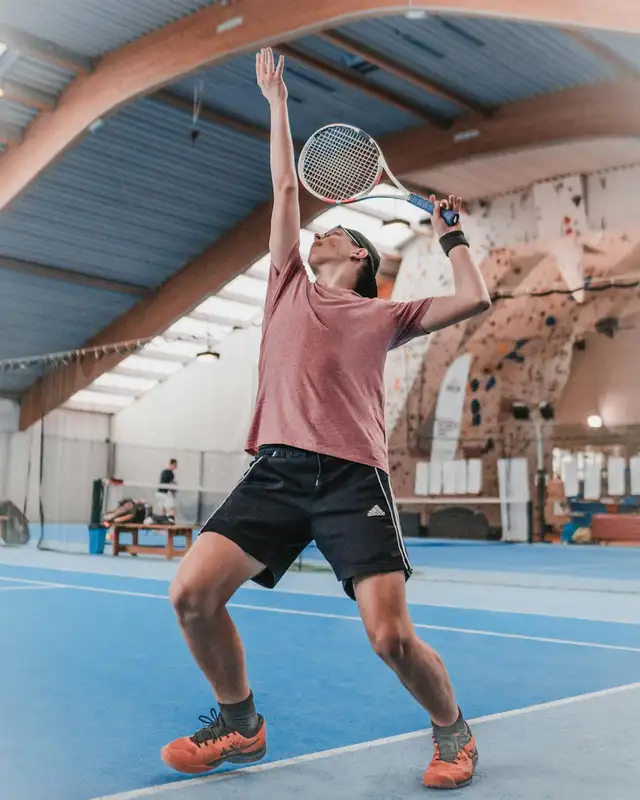As a tennis ball arcs over the net on a clay court, the player on the receiving end must be ready to counter with precision and power, adapting to the ever-changing conditions of the game. This dynamic environment is precisely what Sense Arena, a virtual reality training company, aims to replicate and enhance through its innovative technology.
Originating from Prague in the Czech Republic, Sense Arena has made a name for itself with its VR training platforms for ice hockey and tennis. The company’s technology can simulate various court surfaces, such as grass, clay, or hard courts, while meticulously tracking a player’s grip and the ball’s speed.
Initially setting up its U.S. headquarters in Boston, Sense Arena is now expanding its presence by establishing a new headquarters in Tampa. This move is part of their strategy to further develop their tennis training capabilities.
“Florida was always on our radar, and Tampa’s strategic location offers excellent connectivity to Europe. The city is also thriving with co-working spaces and a pool of talented individuals,” stated Bob Tetiva, CEO and founder of Sense Arena. He also highlighted that St. Petersburg hosts the Women’s Tennis Association (WTA), adding to the appeal of the location.
When Sense Arena first launched its Boston headquarters, it focused exclusively on hockey training, catering to a strong customer base in the Northeast. The startup collaborates with five NHL teams, 11 Division I hockey programs, and numerous global youth organizations.
After refining its hockey platform in 2018 and exploring other sports, the company identified tennis as the next logical addition, given its popularity in both the Czech Republic and the U.S.
Expanding into Tennis
The expansion into tennis is spearheaded by Brazilian professional tennis player Luisa Veras Stefani and Sense Arena’s CEO Bob Tetiva.
The team is aiming for a March launch of the tennis division at the Embarc Collective hub, a prominent incubator and co-working space in Tampa.
In the previous year, Sense Arena secured $3 million in funding, which facilitated the development of the tennis division during the fall.
This new division has garnered support from international tennis legend Martina Navratilova and is utilized by numerous professional players, including Jennifer Brady and Jack Sock.
Technological Advancements
Tetiva shared that the company has been on a six-year journey, experimenting with various hardware platforms. In 2019, they were using the HTC Vive headset, but the onset of the Covid pandemic saw the emergence of competitive VR technologies from companies like Facebook, offering more flexible pricing.
Currently, Sense Arena’s VR technology operates on the Meta Quest 2, a headset developed by Facebook, now known as Meta Platforms.
Today, Sense Arena boasts a team of over 50 employees.
Strategic Partnerships
To bolster the tennis division, Sense Arena appointed Yannick Yoshizawa as Vice President of Tennis. Yoshizawa previously served as a tour supervisor for the WTA.
Leveraging Yoshizawa’s connections, Sense Arena secured its first NCAA tennis partnership with the University of South Florida’s Division 1 men’s and women’s teams.
Yoshizawa, who played college tennis from 2012 to 2018, remarked, “Coaches are always seeking new ways to enhance training. This technology caught their attention, and it was straightforward to introduce.”
Discussions with USF began in 2022, culminating in a one-year agreement that took effect this year.
“We are thrilled to partner with Sense Arena. This technology offers a fantastic way for our players to focus on visualization,” stated USF Women’s Tennis Head Coach Cristina Moros. “It’s an ideal tool for recovery days, allowing us to exercise the mind and concentrate on the mental aspects of tennis.”
Future Developments
Currently, Sense Arena’s tennis product emphasizes the returning player’s perspective, but future iterations may include features that allow players to serve the ball to opponents.
With thousands of tennis users, Sense Arena is experiencing a surge in demand, with 20 to 50 new licenses being purchased daily. Their clientele includes universities and clubs, focusing on business-to-business transactions.
Yoshizawa and Tetiva clarified that the product is not available in retail stores. Instead, it can be purchased online through Sense Arena’s e-shop, where users can download the software. The physical racket and technology are shipped from three different distribution centers.
